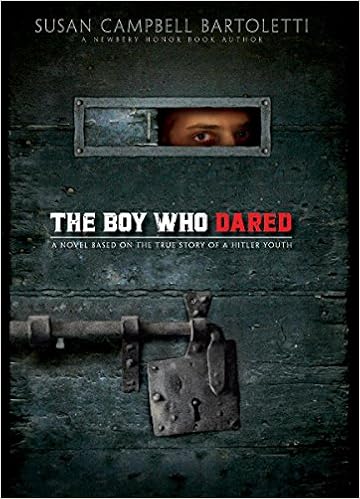Black Potatoes: The Story of the Great Irish Famine, 1845-1850
Hardcover – October 29, 2001
Description
From School Library Journal Gr 6-10-When most American teens talk about hunger, it's that growling sensation before meals. Famine is beyond their ken, an abstraction made only marginally concrete by TV images of the Third World. In the Irish potato famine of 1845-50, it was Europeans starving to death, and the impact on Ireland (one million dead, two million fled) and on the U.S. was staggering (those immigrants came here). The chronology of the disaster unfolds in this gruelingly poignant text that draws heavily on news reports and first-person narratives. Bartoletti's title also incorporates period pen-and-ink sketches and poetry laying bare the fragility, injustice, and stratification of Irish peasant society that could not cope with agricultural tumult. People lived on potatoes-and only potatoes-while growing profitable exports for British landlords. When the crops mysteriously failed repeatedly over the next five years, the peasants simply starved to death while the social structure of the society nearly died along with the populace. Relief efforts were brutally incompetent where they existed at all, and only the Quakers emerge as heroes of mercy. The bibliography (also narrative) provides some of the most fascinating historical reading in the book. Overall, a useful addition to collections, for both personal and research uses. Mary R. Hofmann, Rivera Middle School, Merced, CA Copyright 2001 Cahners Business Information, Inc. From Booklist *Starred Review* Gr. 6-12. Through the voices of the Irish people, Bartoletti tells the history of the Great Irish Famine of the late 1840s. Eyewitness accounts and memories combine with devastating facts: one million died from starvation and disease; two million emigrated; the famine could have been avoided; the legacy was a bitter resentment against the English, who owned most of Ireland. The year-by-year political history is occasionally heavy going; but, as she did in Growing Up in Coal Country (1996), a Booklist Editors' Choice, Bartoletti humanizes the big events by bringing the reader up close to the lives of ordinary people. There are heartbreaking accounts of evictions, of the Irish starving while food is exported to England, and of deaths in the coffin ships that took the desperate to North America. The text is broken up with many black-and-white drawings from newspapers of the time, and a long final essay includes information about books, primary sources, library collections, and Web sites that readers can turn to for school reports and for research into their own family histories. It's a wonder there are so few nonfiction books about this subject for young people. Hazel Rochman Copyright © American Library Association. All rights reserved "Bartoletti humanizes the big events by bringing the readers up close to the lives of ordinary people." -- Susan Campbell Bartoletti is the award-winning author of several books for young readers, including Black Potatoes: The Story of the Great Irish Famine, 18451850, winner of the Robert F. Sibert Medal. She lives in Moscow, Pennsylvania. Read more
Features & Highlights
- A powerful story brings to life the men, women, and children who suffered from starvation, disease, and the loss of family and loved ones during the Great Irish Famine, and details the many heroes who brought hope to the Irish people.





